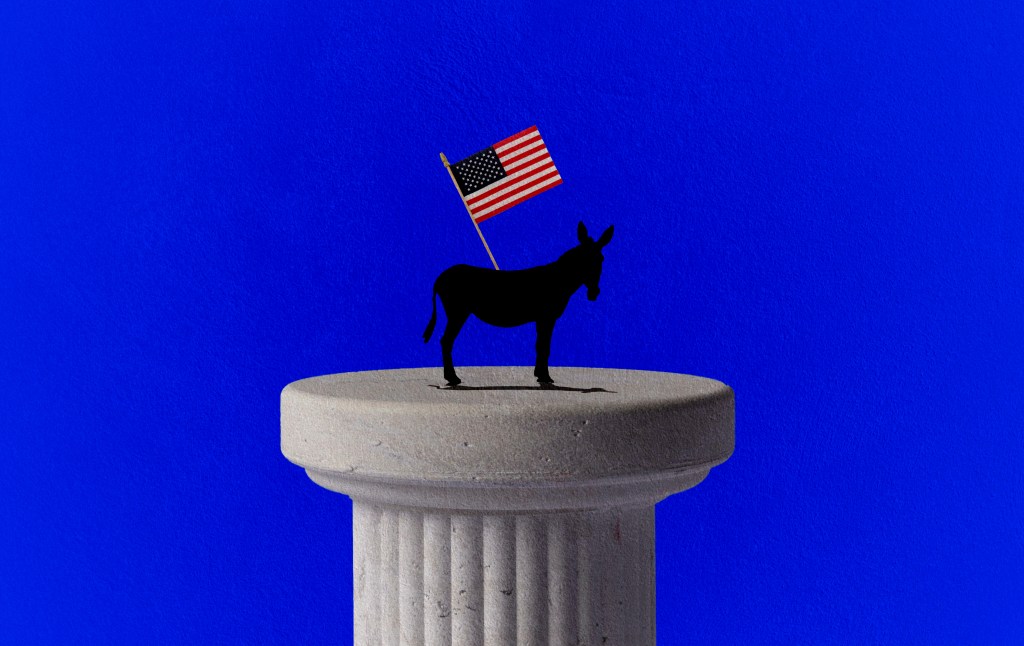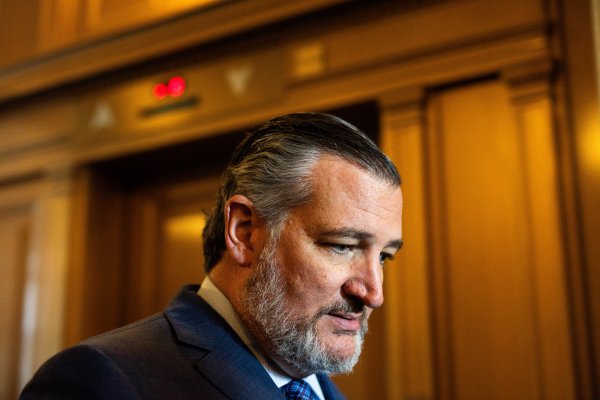Perhaps you’ve heard this famous anecdote about Adlai Stevenson, the liberal intellectual who had the bad political luck to be the Democrats’ nominee to take on Dwight Eisenhower in both 1952 and 1956: An admirer assured him, “Every thinking person in America will be voting for you,” and Stevenson, who wasn’t a fool, quipped, “I’m afraid that won’t do—I need a majority.”
(Eisenhower won 39 states in 1952 and then 41 the next time around—and there were only 48 of them back then.)
When I find myself in a majority, I try to figure out where I went wrong. I do think there is something to Margaret Mead’s advice—“Never doubt that a small group of thoughtful, committed citizens can change the world; indeed, it’s the only thing that ever has”—even if she overstates the case. To be a conservative in 2025 is to be politically homeless—but perhaps not entirely politically friendless.
It has been something to watch such figures as Ezra Klein and Matthew Yglesias conclude that their professional time is best spent trying to force upon fellow progressives an understanding of a few necessary truths, i.e., that if we built a lot more houses, there would be a lot more houses. Klein has even gone as far as to acknowledge some of the century-old (or older) lessons to be had from public-choice economics and the work of the Austrian economists (e.g., that people who have much to gain by shaping regulations will put a lot more work into doing so than people who have nothing to gain) though he sometimes writes as though these were ideas without ancestries, as though he deduced them for himself two weeks ago. Still, more joy in Heaven and all that.
Writing at The Causal Fallacy, Charles Fain Lehman of the Manhattan Institute notes the case of a writer associated with Klein’s “abundance” liberalism, former Vox contributor Kelsey Piper, encountering some unpleasant facts of life, namely that a growing mountain of rigorous research shows that cash transfers are a form of welfare that does not contribute very much to the welfare of beneficiaries, that the main observable result from money benefits is that recipients work a bit less, while other metrics ranging from health to education to quality of parenting show no improvement. “These are careful, well-conducted studies,” Piper writes. “They are large enough to rule out even small positive effects and they are all very similar. This is an amount of evidence that in almost any other context we’d consider definitive.” Lehman points out some signposts on the road ahead:
This doesn’t mean that policy can’t do things. It can, and often does. But as a general rule, when it does it does so through simple channels that involve shifting people’s incentives, rather than trying to change people as people. And because those channels are few and far between, we should expect policy that tries to do the hard work of changing people to mostly fail.
There’s actually a term for this line of critique, as applied not merely as an evaluative insight but a political one. That term is “neoconservatism.” Long before it took on today’s pejorative sense, it referred to a group of previously left-of-center intellectuals who were persuaded, largely by their encounters with actually existing government policy as implemented under the Great Society, that policy rarely worked, often backfired, and reliably could not change who people are.
Over at his Substack, Cass Sunstein comes around to a deeper appreciation of some old philosophical adversaries: “I like [F. A.] Hayek a lot less ambivalently than I once did, and [Ludwig] von Mises, who once seemed to me a crude and irascible precursor of Hayek, now seems to me to be (mostly) a shining star (and sometimes fun, not least because of his crudeness and irascibility). The reason is simple: They were apostles of freedom. They believed in freedom from fear.” Just as the political environment of the 1980s and 1990s informed Sunstein’s evaluation of the work of Hayek and Mises, who were very much informed by the 1930s and 1940s—the age of Stalin and Hitler—so, too, do recent political developments force a redrawing of the political-philosophical map that was first drawn up during the Cold War. “Liberalism is a big tent,” Sunstein concludes, one big enough to include many of those former opponents. “It’s much more than good to see them under it. It’s an honor to be there with them.”
Conservatives alienated from the Republican Party (as conservatives must be) may make their peace with the Democratic Party, as some have, but many (I suppose most) cannot muster much more than an “Ugh!” for a party whose moderate wing is characterized by Joe Biden and whose radical camp is rallying behind Zohran Mamdani, the professing socialist who aims to be not only the next mayor of New York City but also the new mascot of the left wing of the party of the left. But while there probably are not many estranged liberals who feel about the Democratic Party precisely the way conservatives are obliged to feel about the current Republican Party—in part because the Democrats are not at this moment led by a man who attempted a coup d’état the last time he lost an election—they are frustrated and disappointed and, at times, full of very reasonable contempt for their ancestral party. Liberals acknowledging painful truths of an uncomfortable ideological origin—whether those be Hayekian or neoconservative in character—have something in common with conservatives reckoning (as we must) with the fact that unsavory constituents such as racism, millenarian religious fanaticism, xenophobia, nihilistic antirationalism, and old-fashioned bumptiousness play a much more prominent role on the right than we had supposed.
There are other stirrings to regard, some of them abroad. Chancellor Friedrich Merz of Germany’s conservative Christian Democratic Union is having a moment of welcome frankness: “The welfare state that we have today can no longer be financed with what we produce in the economy.” As the editors of the Wall Street Journal note, that kind of candor is not heard from Trump’s imitators on the other side of the Atlantic—neither from Marine Le Pen in France nor from Nigel Farage in the United Kingdom nor from many others of that tendency.
At home, the party of Donald Trump—the party of J.D. Vance and Ted Cruz and Marco Rubio and Tucker Carlson, not to mention supposed normies such as Mike Pence, et al.—currently is engaged in answering a question I hadn’t thought anyone was asking: “What would national socialism look like if antisemitism were less of a political priority?” Meanwhile, the Democrats are flirting with democratic socialism, which I suppose is having a vote about whether to liquidate the kulaks as a class. Not great. And, yet, there are voices from the left taking seriously arguments about the limits of government planning, about regulatory capture, about letting markets work, about addressing progressive priorities such as climate and health care costs through innovation rather than exclusively through the ol’ one-two of regulation and subsidy.
That minority of thinking people who endorse such “globalist” priorities as international trade and collective security are effectively without political representation in either party. The spending-cutters and the tax-raisers are warily eyeing one another across the gulf of our national debt and starting to admit that each camp is going to be forced to accommodate the other if anything is to be done to head off fiscal calamity. There is a quiet emerging consensus that the campus radicals and the little commissars of the HR department have gone too far in sundry daft crusades that are mirrored on the right by the jihad against (I remind you, gentle reader, that I am not making this stuff up) “gay race communism” down at the Cracker Barrel marketing department.
As Sunstein notes, there is a word for what we have in common: liberalism. That liberalism encompasses individual rights and liberty, a free economy, the rule of law, transparency and accountability in government, political equality, checks and balances, etc. As it happens, the most important book in the liberal tradition was published within a few months of the most important event in the liberal tradition: March of 1776 saw the publication of The Wealth of Nations, and the Declaration of Independence announced the American Revolution in July of that blessed year. The liberalism described by Adam Smith and Thomas Jefferson is a great part (though not all) of what American conservatism is meant to conserve.
It is what Trump and his movement mean to gut.
And if there is an emerging liberal minority that can help stand in the way of Trump and his epigones, then there is political work to be done. I am sure that it would not take me long to find much to disagree about with Cass Sunstein or Kelsey Piper or—and this part I am especially confident about!—Matt Yglesias.
But Donald Trump? J.D. Vance? I wouldn’t trust either man with my dachshund, much less my country.










Please note that we at The Dispatch hold ourselves, our work, and our commenters to a higher standard than other places on the internet. We welcome comments that foster genuine debate or discussion—including comments critical of us or our work—but responses that include ad hominem attacks on fellow Dispatch members or are intended to stoke fear and anger may be moderated.
With your membership, you only have the ability to comment on The Morning Dispatch articles. Consider upgrading to join the conversation everywhere.